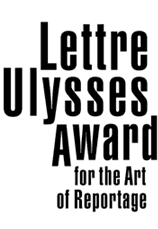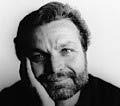
Nedim Gürsel, Turkey
 “Writing is perhaps nothing but an illusion. But it is also a way of jumping into the void, of defying death, above all if the words have become an integral part of one’s self, an indispensable substance of one’s life, of one’s unavoidable universe in fact. Nevertheless, one cannot vanquish death neither by giving life to a child nor by tracing your words upon a blank page.”
“Writing is perhaps nothing but an illusion. But it is also a way of jumping into the void, of defying death, above all if the words have become an integral part of one’s self, an indispensable substance of one’s life, of one’s unavoidable universe in fact. Nevertheless, one cannot vanquish death neither by giving life to a child nor by tracing your words upon a blank page.”
Writer, novelist, literary critic, Essayist. Nedim Gürsel was born in Gaziantep, Turkey, in 1951. He published his first novellas and essays in Turkish literary magazines in the late 1960s. After the military coup d’état in 1971, he left for Paris to study Comparative Literature at the Sorbonne and he completed his doctoral dissertation in 1979 on Nâzim Hikmet and Louis Aragon. Gürsel then returned to Turkey, but the military putsch of 1980 sent him back into exile in France. He then wrote articles and travel reports which were published in Le Monde, as well as in the Turkish newspapers Cumhuriyet and Milliyet.
Gürsel has published over thirty books, including novels, essays, short stories, works of literary criticism and travel writing. In 1976 he published his first major prose work, Long summer in Istanbul, which received Turkey’s most prestigious award for literature, the Prize of the Turkish Language Academy. In 1983 his novel The First Woman was charged with having offended public morality and it was censored by the Turkish military regime for many years. In 1986 the book was awarded the Ipekçi Prize for promoting Turkish-Greek cultural understanding. In the same year he received the Prix de la Liberté from the French PEN Club. In 1987 Gürsel published The Conqueror, a novel which deals with the 1453 conquest of Constantinople from the perspective of the conqueror, Sultan Mehmet II and is also a critical examination of the military dictatorship of the early 1980s. Although in Turkey Gürsel was accused of being a traitor for his portrait of Mehmet, whom fundamentalists perceive as a saint, internationally the book is regarded as one of the most outstanding postmodern Turkish novels.
In Turbans in Venice, which was published in 1999, the Turkish protagonist studies his homeland from the point of view of Italian Renaissance painting. A dialogue develops between Ottoman and European culture, which is characteristic of Gürsel’s work. His most recent books include the literary travel reportage Mirages du Sud (2001) on the Islamic roots of Spain, a work of literary criticism Le Chant des Hommes (2002), the novel Balcon sur la Méditerranée (2003) and his literary memoir Au pays des poissons captifs: Une enfance turque (2004).
Nedim Gürsel was awarded the Radio France Internationale Prize for the best novel of 1990 and in 2003 he won the France-Turkey Prize for his life-time achievements. In 2004 he received the Fernand Rouillon Literary Prize from the Franco-Turkish Committee at the Turkish Tourism Office in Paris. In the same year he was named a Chevalier des Arts et Lettres by the French Ministry of Culture. Gürsel lectures on contemporary Turkish literature at the Sorbonne in Paris and is Director of Research at the Centre National de la Recherche Scientifique.
Nedim Gürsel’s work has been translated into many languages including French, German, Arabic, Italian, Spanish, Portuguese, Dutch, Greek and Bulgarian. He speaks Turkish, French and English and lives in Paris and Turkey.
